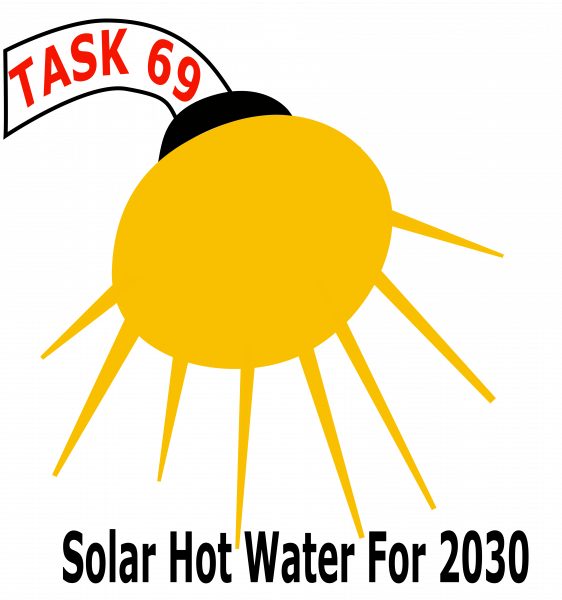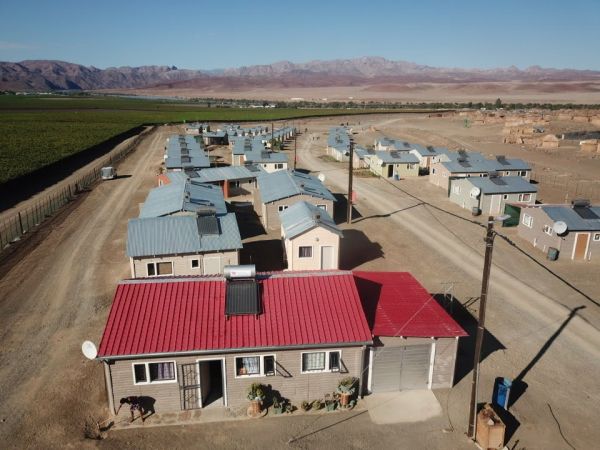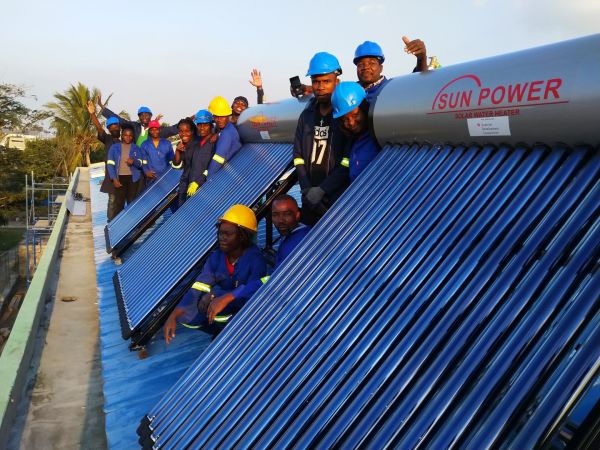IEA SHC Task 69: Solar Hot Water for 2030
Short Description
The demand for hot water is continuously increasing worldwide, especially due to higher demands on hygiene and user comfort. Globally, hot water supply is still predominantly based on fossil fuels. Solar technologies currently account for only 2% of heat supply worldwide, although they offer many advantages, especially in relevant target markets with high solar irradiance.
IEA SHC Task 69 of the International Energy Agency (IEA) aims to make key solar hot water technologies more cost-effective, efficient, and reliable. The Task focuses on two technologies that are expected to play the most important role on a global scale in 2030 and beyond: Thermosyphon and photovoltaic (PV) hot water systems. Advantages of these technologies are that they avoid pumped circulation, require little maintenance, and have relatively low up-front capital costs.
In terms of content, there are four lines of development:
- Preparation of market analyses of solar hot water supply in different regions, identification of the potential of new system designs, in particular the use of intelligent controls and components.
- Implementation of system optimizations to increase yields and reduce manufacturing and operating costs with a focus on thermosyphon systems, implementation of measures to improve durability, reliability, carbon footprint and ease of use.
- Development and harmonization of new and current standards, preparation of training materials.
- Identification and prioritization of R&D needs, strengthening of local industries, especially in developing countries.
The work is divided into four subtasks:
- Subtask A: State-of-the-art and operating environments in different regions
- Subtask B: Thermosyphon hot water systems
- Subtask C: Solar Photovoltaic Hot Water
- Subtask D: Training and Standards
The Austrian contribution consists of the lead of Subtask A with a focus on the collection of market data, documentation of best practice examples, analyses of system configurations and potentials for cost reduction, development of evaluation methods and reference models, contributions to constructive and material-based improvements of thermosyphon systems as well as providing inputs to the development of standards.
At the end of the task, global market analyses for solar hot water technologies, a database on installed systems in different regions, and systematic comparisons of solar hot water technologies and their potentials are available. For thermosyphon systems, research results are available to improve durability and reliability, and to reduce greenhouse gas emissions. A terminology and reference models have been developed for PV hot water systems.
Project Partners
Project leader
Mag. DI Daniel Tschopp, BSc
AEE INTEC
Feldgasse 19, A-8200 Gleisdorf
d.tschopp@aee.at
Project partners
DI Christoph Rohringer
AEE INTEC
Feldgasse 19, A-8200 Gleisdorf
c.rohringer@aee.at
DIin(FH) Carina Seidnitzer-Gallien, MA
AEE INTEC
Feldgasse 19, A-8200 Gleisdorf
c.seidnitzer-gallien@aee.at
DI Veronika Hierzer
AEE INTEC
Feldgasse 19, A-8200 Gleisdorf
v.hierzer@aee.at
DI Harald Poscharnig
GREENoneTEC Solarindustrie GmbH
Industriepark St. Veit, Energieplatz 1, A - 9300 St. Veit/Glan
harald.poscharnig@greenonetec.com
Günter Koschier
GREENoneTEC Solarindustrie GmbH
Industriepark St. Veit, Energieplatz 1, A - 9300 St. Veit/Glan
guenter.koschier@greenonetec.com
Ing. Johannes Petrej
GREENoneTEC Solarindustrie GmbH
Industriepark St. Veit, Energieplatz 1, A - 9300 St. Veit/Glan
johannes.petrej@greenonetec.com
Ao. Univ.-Prof. Dr. Gernot Wallner
Johannes Kepler University Linz - Institute of Polymeric Materials and Testing (IPMT)
Science Park 2, Altenberger Strasse 69, 4040 Linz
gernot.wallner@jku.at
DI Harald Kicker
Johannes Kepler University Linz - Institute of Polymeric Materials and Testing (IPMT)
Science Park 2, Altenberger Strasse 69, 4040 Linz
harald.kicker@jku.at
Participants
Australia (joint Operating Agent with China), Austria, Botswana, Canada, China (joint Operating Agent with Australia), Denmark, Greece, Italy, Lesotho, Namibia, Norway, Portugal, South Africa, Switzerland, Zimbabwe



